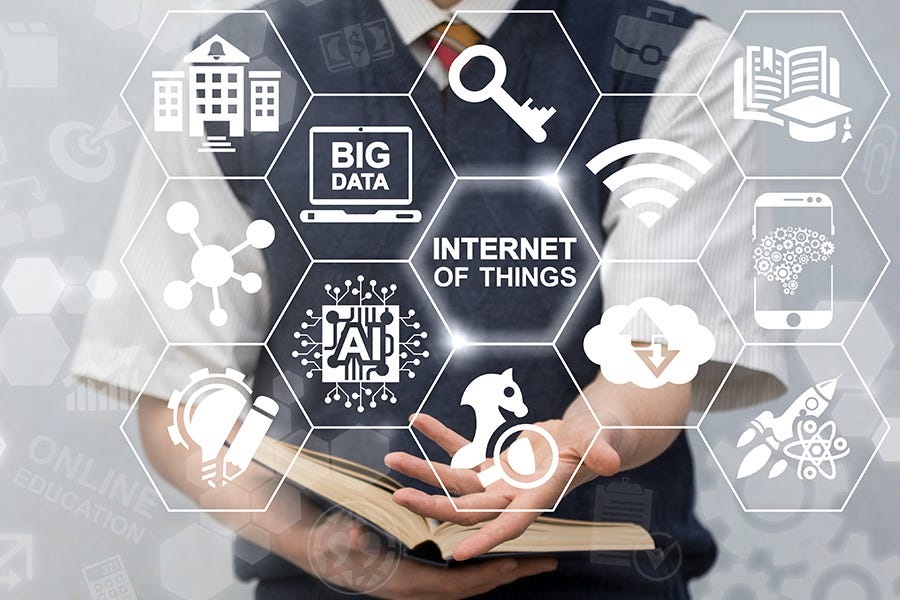
Blockchain technology has made significant strides since its inception, primarily recognized as the backbone of cryptocurrencies like Bitcoin. However, its potential extends far beyond digital currencies, offering transformative solutions across various industries. This article explores the rise of blockchain technology, its applications beyond cryptocurrency, and the potential it holds for the future.
What is Blockchain Technology?
Blockchain is a decentralized digital ledger that records transactions across multiple computers. This technology ensures that the data is immutable, transparent, and secure, making it a reliable solution for various applications. Each block in a blockchain contains a list of transactions, and once a block is completed, it is added to the chain in a linear, chronological order.

Key Features of Blockchain
Decentralization
Blockchain operates on a peer-to-peer network, eliminating the need for a central authority. This decentralization ensures that no single entity has control over the entire blockchain, enhancing security and trust.
Transparency
All transactions on a blockchain are visible to all participants, ensuring transparency. This feature is particularly beneficial in industries where trust and accountability are paramount.
Security
Blockchain uses cryptographic techniques to secure data. Each transaction is encrypted and linked to the previous transaction, making it nearly impossible for hackers to alter the data without being detected.
Applications of Blockchain Beyond Cryptocurrency
Supply Chain Management
One of the most promising applications of blockchain technology is in supply chain management. Blockchain can provide end-to-end visibility, ensuring that all parties have access to the same information. This transparency helps in reducing fraud, improving inventory management, and enhancing overall efficiency.
For instance, IBM’s Food Trust blockchain is being used by companies like Walmart to trace the origin of food products, ensuring safety and quality.
Healthcare
Blockchain technology can revolutionize the healthcare industry by providing a secure and interoperable system for managing patient records. It ensures that patient data is accurate, up-to-date, and accessible to authorized healthcare providers. This can lead to improved patient care and reduced administrative costs.
For example, the company Medicalchain uses blockchain to create a user-centered electronic health record, allowing patients to grant access to their medical data to different healthcare providers.
Finance
Beyond cryptocurrencies, blockchain is making waves in traditional finance. It can streamline processes, reduce fraud, and enhance security in financial transactions. Blockchain enables faster and more secure cross-border payments, reducing the reliance on intermediaries.
A notable example is Ripple, a blockchain-based payment protocol that facilitates real-time, cross-border transactions.
Voting Systems
Blockchain technology can enhance the integrity and transparency of voting systems. It ensures that votes are securely recorded and cannot be tampered with, increasing voter trust and participation.
Several countries and organizations are exploring blockchain-based voting systems to prevent electoral fraud and ensure accurate results. For instance, West Virginia tested a blockchain-based mobile voting app for military personnel in the 2018 midterm elections.
Challenges and Future of Blockchain
Despite its potential, blockchain technology faces several challenges. These include scalability issues, regulatory uncertainties, and the need for widespread adoption. However, ongoing research and development are addressing these challenges, paving the way for broader implementation.
The future of blockchain looks promising, with potential applications in various sectors such as real estate, education, and energy. As technology continues to evolve, it is expected to bring about significant changes in how we conduct transactions, share information, and build trust in the digital age.
Conclusion
Blockchain technology is undoubtedly one of the most groundbreaking innovations of the 21st century. While its association with cryptocurrency brought it to the limelight, its applications extend far beyond digital currencies. From supply chain management and healthcare to finance and voting systems, blockchain is poised to revolutionize various industries by providing secure, transparent, and efficient solutions. As we continue to explore and harness the potential of blockchain, it is set to become an integral part of our digital future.








